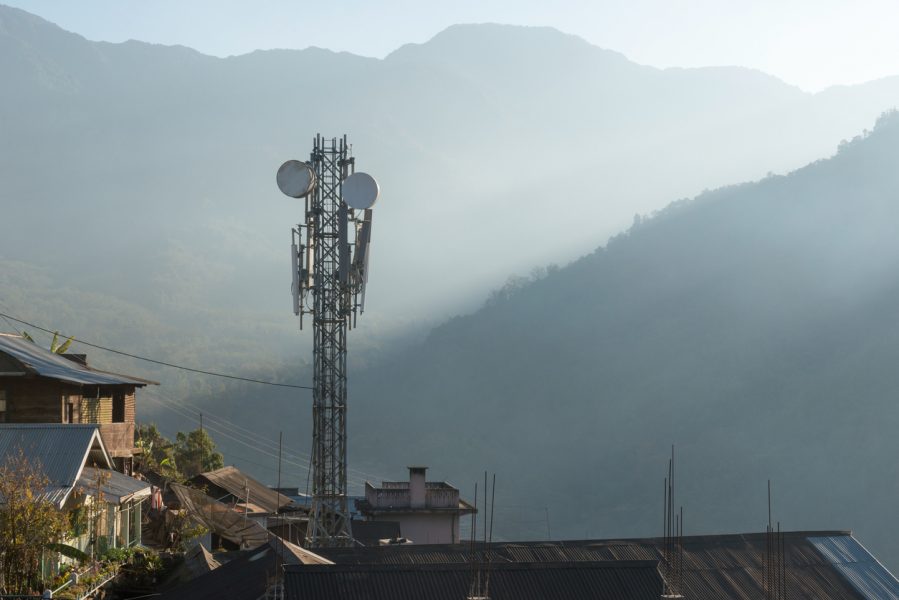
New Telecom Bill: Spectrum as atma, with sharper rules on service provision
The Centre on Wednesday came up with a new Indian Telecommunication Bill, 2022, that seeks to redefine and streamline the granting of licences and provision of services across spectrum.

The Centre on Wednesday came up with a new Indian Telecommunication Bill, 2022, that seeks to redefine and streamline the granting of spectrum and provision of services across the board.
The draft Bill consolidates three separate current laws that govern the telecommunications sector — Indian Telegraph Act 1885, Indian Wireless Telegraphy Act 1933, and The Telegraph Wires, (Unlawful Protection) Act 1950.
The Bill, once it becomes an Act, will consolidate laws governing the provision, development, expansion and operation of telecommunication services, telecom networks and infrastructure, in addition to assignment of spectrum.
Spectrum as atma
Much to the mirth of Twitterati, the Bill envisages telecom spectrum as ‘atma’. “In a way, spectrum is similar to atma, which is ajar, amar, as described in Bhagwad Gita. Like atma, spectrum too dos not have any physical form, yet it is omnipresent,” says the draft Bill.
“In a way, spectrum is similar to atma, which is ajar, amar, as described in Bhagwad Gita. Like atma, spectrum too dos not have any physical form, yet it is omnipresent”
This is not a spiritual text. It is Page 5 of Explanatory Note to Telecom bill uploaded on @DoT_India website pic.twitter.com/Q2r3imQS6w
— Mahua Moitra (@MahuaMoitra) September 22, 2022
As per the Bill, all spectrum would be given primarily by auction mode only, except for specific functions related to the government and public interest, like defence, transportation and research, for which spectrum would be allotted through the administrative process.
The government could later ‘re-farm’ or ‘harmonise’ any frequency range assigned by auction or administrative process.
Also read: Odisha to get 5G in first phase of launch, says Telecom Minister Ashwini Vaishnaw
The Indian Telecommunication Bill paves the way for sharing, trading, leasing, surrender of spectrum assigned, and a process to return unutilised spectrum. It also proposes to ensure taking back of spectrum if the telecom provider goes through bankruptcy or insolvency.
Information Technology Minister Ashwini Vaishnaw said that the government will focus on continuity of service in case a company goes for insolvency and the spectrum comes back to the government.
OTTs to be subjected to licence
As per the draft law, providers of telecommunication services, including OTT providers and messaging patforms like WhatsApp, Singal, Telegram, will be covered under the licensing regime, and will be subjected to similar rules as telecom network operators. They too will have to comply with the Know Your Customers (KYC) provisions.
This would enable to a large extent prevention of cyber fraud, as the Bill requires the identity of a person sending a message through telecom services to be made available to a user receiving it.
Also read: India aims to roll out 6G telecom network by end of decade: PM
Putting the onus on the user to provide correct information while taking services, the bill proposes up to one year imprisonment for giving false identity for availing telecom services.
The issue had been a point of contention between telecom network service providers and OTT apps, on whose free platforms abuse was done by users but the cost had to be borne by network providers.
TRAI cold-shouldered?
The Bill proposes to reduce the Telecom Regulatory Authority of India’s powers to make recommendations to the government before it issues a new licence to a service provider.
It also does away with the Universal Service Obligation Fund, used for developing network in rural areas. This would now become the Telecommunication Development Fund whose objective is to also boost connectivity in underserved urban areas, R&D, skill development, etc.
Vaishnaw has said that the Bill is expected to go through the processes of parliamentary committees and Parliament before it becomes a law, all of which is expected to take around 6-10 months.

